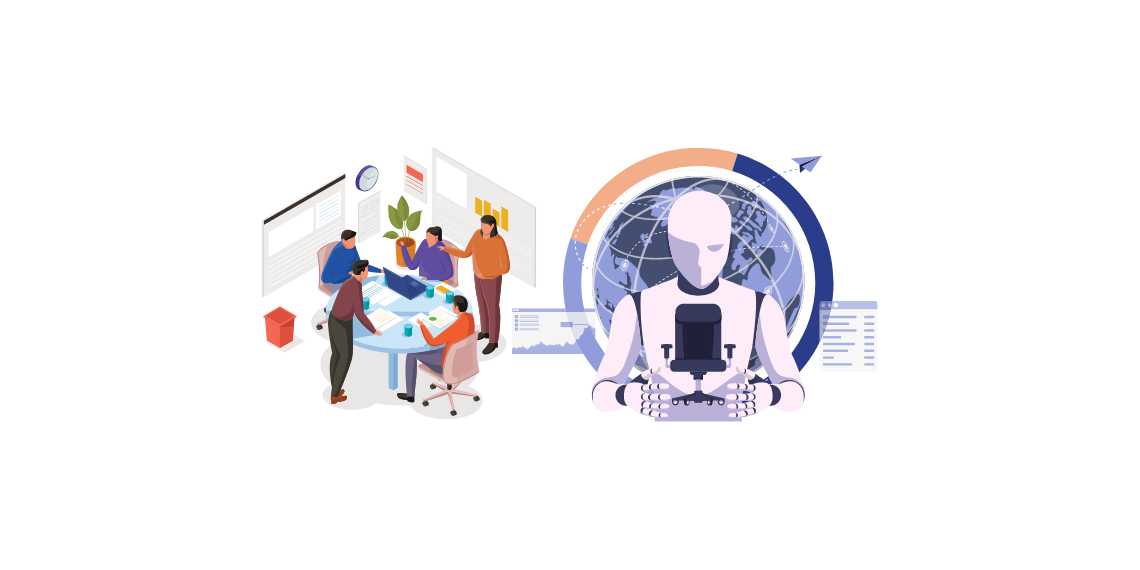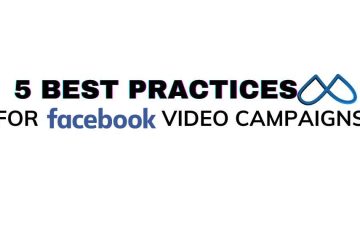Are you a small business owner looking to take your marketing efforts to the next level? Look no further! In this comprehensive guide, we will show you how to boost your small business using the power of AI marketing. Artificial intelligence has rapidly become a game-changer in the world of digital marketing, offering innovative solutions that can help you reach your target audience more effectively and efficiently. Whether you are new to AI or already familiar with its benefits, this step-by-step guide will provide you with practical tips and strategies to leverage AI technology for your business’s growth. From automating repetitive tasks to personalizing customer experiences, AI marketing can revolutionize the way you engage with your audience, drive conversions, and increase your bottom line. So, if you’re ready to supercharge your small business, let’s dive in and discover the endless possibilities that AI marketing has to offer.
Understanding the Benefits of AI Marketing
Artificial intelligence (AI) has the power to transform the way businesses operate and market their products or services. By leveraging AI technology, small businesses can level the playing field and compete with larger corporations. One of the key benefits of AI marketing is its ability to analyze vast amounts of data and provide valuable insights that can inform decision-making processes. With AI, small businesses can gain a deeper understanding of their target audience, identify patterns and trends, and make data-driven marketing strategies.
AI marketing also enables businesses to automate repetitive tasks, freeing up time and resources for more creative and strategic initiatives. By automating tasks such as data analysis, content creation, and customer segmentation, small businesses can streamline their marketing efforts and improve overall efficiency.
Additionally, AI marketing allows businesses to deliver personalized experiences to their customers. AI algorithms can analyze customer behavior, preferences, and past interactions to tailor marketing campaigns specifically to individual needs. This level of personalization can significantly enhance customer satisfaction and increase the likelihood of conversion.
Step 1: Conducting Market Research and Identifying Target Audience
Before implementing AI marketing strategies, it is crucial to conduct thorough market research and identify your target audience. Understanding your customers’ needs, preferences, and pain points is essential for crafting effective marketing campaigns. AI can assist in this process by analyzing vast amounts of data from various sources, such as social media, customer feedback, and online reviews.
Start by gathering demographic information about your target audience, such as age, gender, location, and interests. AI tools can help you segment your audience based on these criteria, allowing you to create more targeted and personalized marketing campaigns.
Step 2: Implementing AI-Powered Customer Segmentation
Once you have identified your target audience, the next step is to implement AI-powered customer segmentation. Traditional segmentation methods often rely on basic demographic information, which may not provide a comprehensive understanding of customer behavior and preferences. AI algorithms, on the other hand, can analyze vast amounts of data and identify patterns that humans may overlook.
To implement AI-powered customer segmentation, you can use AI tools and platforms that provide advanced analytics capabilities. These tools can analyze customer data in real-time and segment your audience based on various factors, such as purchasing behavior, engagement level, and browsing history. By segmenting your audience more accurately, you can deliver personalized marketing messages that resonate with each segment, increasing the chances of conversion.
Step 3: Creating Personalized Marketing Campaigns Using AI Algorithms
With AI-powered customer segmentation in place, it’s time to create personalized marketing campaigns using AI algorithms. AI can analyze customer data and generate insights that can inform your marketing strategies. For example, by analyzing past purchasing behavior, AI algorithms can recommend personalized product recommendations to individual customers. These recommendations can be delivered through email marketing, personalized landing pages, or targeted advertisements.
AI can also assist in creating dynamic content that adapts to each customer’s preferences. By analyzing customer data, AI algorithms can generate personalized emails, website content, and social media posts that are tailored to each customer’s interests and needs. This level of personalization can significantly improve customer engagement and drive conversions.
Step 4: Leveraging AI to Optimize Advertising and Reach More Customers
Advertising is an essential component of any marketing strategy, and AI can help small businesses optimize their advertising efforts. AI-powered advertising platforms can analyze customer data and target advertisements to individuals who are most likely to be interested in your products or services. By leveraging AI, you can reach a highly targeted audience, increasing the chances of conversion and maximizing return on investment (ROI).
AI algorithms can also optimize advertising campaigns in real-time by analyzing data and making adjustments based on performance metrics. For example, if a particular advertisement is not performing well, AI algorithms can automatically adjust targeting parameters or creative elements to improve its effectiveness. This level of optimization can save time and resources while maximizing the impact of your advertising campaigns.
Step 5: Utilizing AI Chatbots for Enhanced Customer Service
Customer service plays a vital role in building customer loyalty and satisfaction. AI-powered chatbots can enhance the customer service experience by providing instant responses and personalized assistance. Chatbots can handle customer inquiries, provide product recommendations, and even process transactions.
AI chatbots can analyze customer inquiries and provide accurate responses based on predefined rules or machine learning algorithms. These chatbots can be integrated into various communication channels, such as websites, social media platforms, and messaging apps. By utilizing AI chatbots, small businesses can provide round-the-clock customer support, improve response times, and reduce the workload for their customer service teams.
Step 6: Analyzing Data and Measuring the Success of AI Marketing Efforts
To ensure the success of your AI marketing efforts, it is crucial to analyze data and measure key performance indicators (KPIs). AI tools can help you track and analyze various metrics, such as website traffic, click-through rates, conversion rates, and customer engagement. By monitoring these metrics, you can identify areas for improvement and make data-driven decisions to optimize your marketing strategies.
It is also essential to set clear goals and objectives for your AI marketing efforts. Whether it’s increasing website traffic, improving conversion rates, or enhancing customer satisfaction, having measurable goals allows you to track your progress and make necessary adjustments.
Common Challenges and How to Overcome Them in AI Marketing
Implementing AI marketing strategies can come with its own set of challenges. One common challenge is the lack of data or poor data quality. AI relies on large amounts of high-quality data to generate accurate insights. If your business lacks sufficient data, consider implementing data collection strategies, such as customer surveys or user tracking tools.
Another challenge is the complexity of AI technology. Small businesses may feel overwhelmed by the technical aspects of AI implementation. To overcome this challenge, consider partnering with AI service providers or consulting with professionals who specialize in AI marketing. These experts can guide you through the implementation process and help you maximize the benefits of AI for your business.
Case Studies: Successful Implementation of AI Marketing in Small Businesses
To provide real-world examples of successful AI marketing implementation, let’s explore a few case studies:
Case Study 1: Customization in Online Retail – Harnessing the Power of AI
In the fast-paced world of e-commerce, one online clothing retailer set a precedent by leveraging artificial intelligence to analyze customer data. The objective was to offer a personalized shopping experience to each customer, with the belief that a customized approach can significantly improve conversion rates.
To accomplish this, the company implemented sophisticated AI algorithms that were capable of scrutinizing a wealth of customer data. These algorithms considered several factors such as customer’s purchase history, browsing patterns, and preferences. They used this information to generate personalized product recommendations, creating a unique, tailored shopping experience for every individual.
The company then integrated these insights into their marketing campaigns, personalizing their approach for each customer. This strategy led to a 20% surge in the conversion rates, a testament to the effectiveness of their AI-driven approach. Moreover, this personalization strategy also led to a substantial improvement in customer satisfaction, underscoring the value of tailored customer experiences in the retail sector.
Case Study 2: Digital Marketing in the Restaurant Industry – A Strategic Use of AI
In an industry where reaching the right customer can make a significant difference, a local restaurant chain demonstrated the transformative power of artificial intelligence in advertising. The restaurants decided to employ AI-driven advertising platforms to optimize their social media advertisements.
The AI technology was used to analyze the vast amount of data from various social media platforms. It identified patterns and preferences of users who were most likely to show interest in their menu. This included data points like location, age, previous dining history, food preferences, and more.
With this information, the restaurant chain was able to target their advertisements more effectively, ensuring they reached the individuals most likely to order from their menu. This strategic use of AI led to a noticeable 30% increase in online orders.
More importantly, the return on their advertising investment was significant. This suggests that the intelligent use of AI in advertising can lead to profitable outcomes, thereby validating the importance of AI-powered digital marketing in the restaurant industry.
These case studies highlight the potential of AI marketing to drive tangible results for small businesses.
AI Marketing Tools and Platforms for Small Businesses
There are numerous AI marketing tools and platforms available to small businesses. Here are a few popular options:
- Chatbots: Chatbots are AI-powered tools that can interact with customers in real time, handle queries, provide customer support, and even assist with sales. They can operate 24/7, providing an improved customer experience without the need for constant human intervention. Platforms like MobileMonkey and Chatfuel offer intuitive chatbot services that small businesses can integrate into their websites and social media platforms.
- Email Marketing Automation: Tools such as Mailchimp and Sendinblue use AI to optimize email marketing campaigns. These platforms can automate the process of sending emails, segment your audience based on their behavior and interests, predict the best times to send emails, and even personalize email content, thus increasing engagement rates.
- Social Media Management: Platforms like Hootsuite and Buffer leverage AI to help small businesses manage their social media presence. They provide features like post scheduling, analytics, and content recommendations. Additionally, they use AI to analyze trends and engagement, helping businesses to understand what content resonates with their audience.
- Content Generation and SEO: AI can assist in creating content and optimizing it for search engines. Tools like Frase and MarketMuse use AI to analyze top-performing content in a specific niche and provide recommendations for creating SEO-friendly content. They can help small businesses create content that is more likely to rank high on search engine results pages (SERPs).
- Customer Relationship Management (CRM): CRM tools like Salesforce and Zoho use AI to improve customer relationship management. These tools can predict customer behavior, provide insights into customer preferences, and automate tasks like follow-ups and reminders, allowing small businesses to manage their customer relationships more effectively.
- Predictive Analytics: Tools such as RapidMiner and Alteryx use AI to analyze data and predict future trends. These predictions can help small businesses make data-driven decisions and stay ahead of the competition.
When choosing AI marketing tools and platforms, consider your business’s specific needs and budget. It’s also essential to research and read reviews to ensure the tools or platforms align with your objectives.
Conclusion
AI marketing has the potential to revolutionize the way small businesses engage with their audience and drive growth. By leveraging AI technology, businesses can automate repetitive tasks, deliver personalized experiences, optimize advertising campaigns, and enhance customer service. However, implementing AI marketing strategies can come with its own set of challenges. By understanding the benefits of AI, following a step-by-step approach, and utilizing AI tools and platforms, small businesses can harness the power of AI to boost their marketing efforts and achieve sustainable growth. So, are you ready to take your small business to new heights with AI marketing? The possibilities are endless!

Hello, I’m Ali Raza, the brain behind Digital Realm Trends.
Hailing from the vibrant world of digital marketing, I’ve honed my skills over years. Based on my experience, I’m here to unravel the complexities of digital marketing, analytics and paid marketing, crafted for individuals like you. Join me in uncovering the power of digital marketing tools and strategies, fueled by experimentation and insights.




